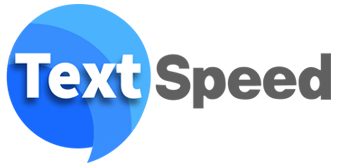Introduction
In today’s digital world, customers expect brands to communicate instantly, personally, and on the channels they already use daily. This is exactly where WhatsApp Marketing and Bulk WhatsApp Messaging are reshaping the way businesses communicate with their audience.
With over 2 billion active users, WhatsApp has become more than just a chat app—it has evolved into one of the most powerful tools for WhatsApp Business Messaging, customer engagement, sales support, and automated service delivery. Brands across industries are now adopting the WhatsApp Business API and advanced automation tools to deliver seamless, fast, and highly interactive communication.
This blog explores how bulk messaging, automation, and conversational flows on WhatsApp are revolutionizing brand–customer interactions.
Why WhatsApp Rules Modern Customer Communication
The primary reason brands prefer WhatsApp Communication for Business is simple: customers respond faster on WhatsApp than on email, SMS, or phone calls.
With high open rates and instant delivery, businesses can ensure their messages get noticed.
Companies leveraging a WhatsApp Messaging Platform gain the advantage of:
- Real-time responses
- Two-way messaging
- Verified business presence
- Rich media support
- Automated customer flows
This is not just communication—it's an immersive experience.
The Power of Bulk WhatsApp Messaging in Scaling Customer Outreach
Bulk WhatsApp Messaging allows companies to send promotional messages, alerts, reminders, and updates to thousands of users instantly. Unlike SMS, WhatsApp supports:
- Images
- Videos
- PDFs
- Buttons
- Quick replies
- CTAs
This makes WhatsApp Marketing an essential strategy for businesses that want higher engagement and better customer response rates.
Whether it is sending festival offers, product launches, payment reminders, or instant OTPs—bulk messages ensure brands stay visible and relevant.
WhatsApp Bulk Sender Tools Transform Automation
A WhatsApp Bulk Sender empowers brands to send mass messages without manual effort. When combined with WhatsApp Message Automation, businesses can create automated workflows to:
- Welcome new customers
- Share order updates
- Send appointment reminders
- Deliver follow-up messages
- Recover abandoned carts
Automation reduces human workload while ensuring customers always receive timely responses.
How Brands Use WhatsApp Business API for End-to-End Communication
The WhatsApp Business API brings enterprise-level reliability and scalability. Brands using the API can integrate WhatsApp directly into their CRM, website, or customer support tools.
Some major benefits include:
- Verified business sender ID
- Secure encrypted communication
- High-volume messaging
- Template-based notifications
- Custom chatbots
This means brands can engage customers automatically at every stage of the journey—from lead acquisition to retention.
WhatsApp Customer Engagement: A New Standard
When a platform offers instant replies, rich content, and interactive features, engagement becomes natural.
Brands use WhatsApp to:
- Offer customer support
- Collect feedback
- Send shipping updates
- Share catalogues
- Book appointments
This boosts WhatsApp Customer Engagement and improves customer satisfaction drastically.
Why WhatsApp Business Messaging Works Better Than Traditional Channels
Email inboxes are crowded. SMS feels outdated. App notifications require app downloads.
WhatsApp solves all these challenges by offering a platform customers use daily.
Here’s why it's more effective:
Higher visibility
Messages have near-100% delivery success and extremely high open rates.
Interactive conversations
Buttons, lists, and media enable richer communication than plain text.
No learning curve
Everyone already knows how to use WhatsApp.
Stronger personalization
Businesses can send personalized product recommendations, dynamic offers, and location-based messages.
The Future: Automated, Personalized WhatsApp at Scale
As AI and automation become standard, WhatsApp Message Automation will play a central role in improving customer experience.
Businesses will combine chatbots, personalized workflows, and real-time responses to deliver seamless communication across the entire customer lifecycle.
And with Bulk WhatsApp Messaging, brands can ensure they stay connected with thousands of customers effortlessly.
Conclusion
WhatsApp Marketing is no longer optional—it's now a core part of modern digital communication. With the right mix of automation, bulk messaging, API integrations, and engagement strategies, brands can transform their customer experience dramatically.
Whether you're a small business or an enterprise, adopting a robust WhatsApp Messaging Platform will help you build stronger, faster, and more meaningful customer conversations.
FAQs
1. What is Bulk WhatsApp Messaging?
It is the process of sending messages to large audiences instantly using automation or sender tools.
2. What is the advantage of using WhatsApp Business API?
It enables secure, high-volume messaging, automation, and advanced features for businesses.
3. Can WhatsApp Marketing improve engagement?
Yes, due to high open rates, interactive features, and real-time conversation.
4. Why should businesses use WhatsApp automation?
Automation helps deliver instant replies, reduces workload, and ensures 24/7 customer service.

.jpeg)
